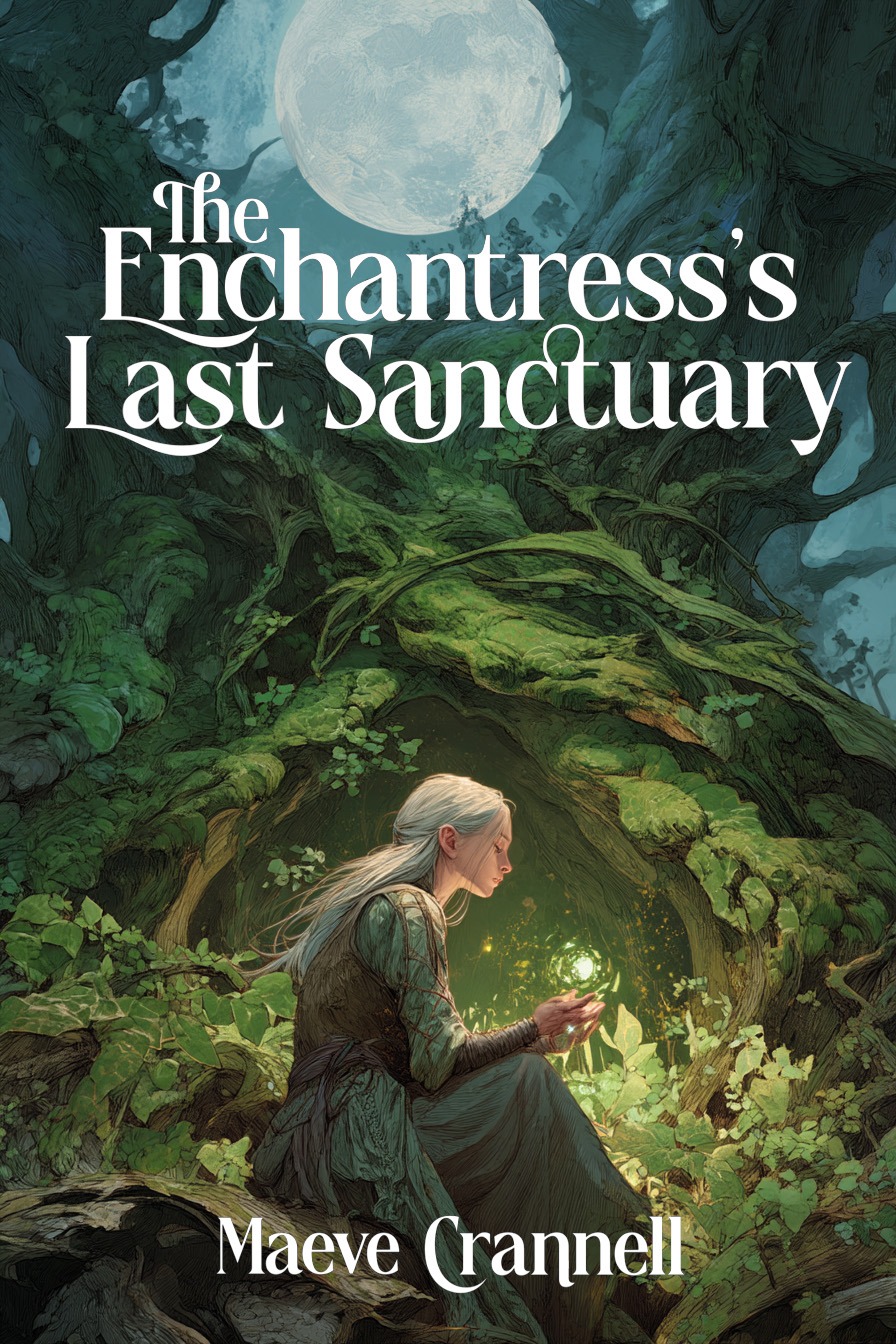Elegant ideas and lovely sentences, but the dreamlike structure and recursive crises left me adrift from page to page.
Between ruin and reprieve there is a sanctuary. When Ilyra Vey, disgraced enchantress of Aramor, wakes in Mossglass Sanctuary—grown into the roots of an ancient worldtree—she is offered one last working to set her life aright. She lives with a failed binding that blackened the River Oran, a scattered order, and a brother lost on the Salt Road. She thinks she has broken every oath that mattered. But Mossglass is not a mercy most survive.
Its chambers keep seeds of abandoned spells. Each seed opens a path into a life that might have grown from a choice she buried: the Citadel of Glass, the cartographer Ren Torv, the queen's blood tithe. With help from Thren, the ink-marked keeper she once called friend, Ilyra learns to step through and graft what she dares. But with every change the root-knots tighten, drawing a cold moon-tide called Vael toward the sanctuary's heart. Before the worldtree sheds its last season, she must choose between guarding a haven for the broken and returning to face the debts she fled. Not every version of her can be saved; she must decide what power is for.
